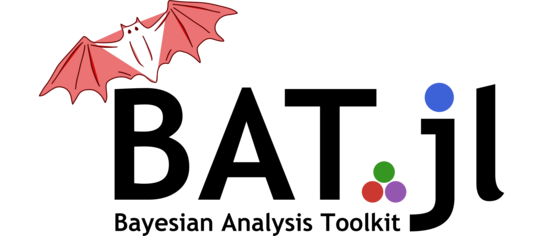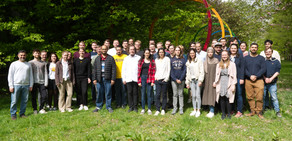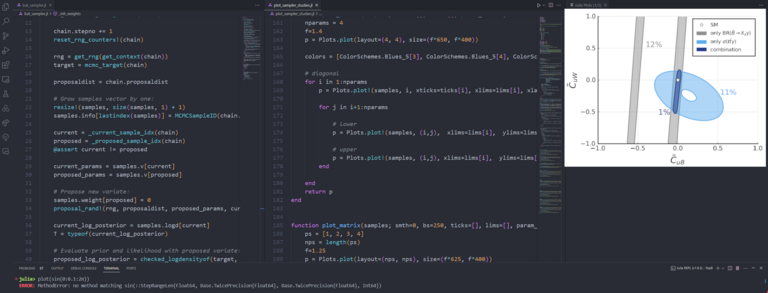Statistical Methods
Typical applications in data analysis include the estimation of free parameters of well-defined models, the comparison of statistical models with data, and the comparison of different models with each other.
The Bayesian Analysis Toolkit (BAT) is a tool for these applications. It is based on Bayes' theorem and uses modern algorithms, e.g. Markov Chain Monte Carlo and Nested Sampling, to compute the full posterior probability density as well as estimating parameters, setting exclusion limits and computing uncertainties.

The original implementation of BAT was written in C++ and closely related to the ROOT framework used in experimental particle physics. In order to make BAT accessible for further fields of application, we are developing a new version of the software, BAT.jl, written in the modern high-level language Julia.
BAT.jl allows a flexible definition of statistical models and applications, focusing on the reliability and performance of the numerical methods. It contains a large number of algorithms for numerical integration, optimization and error propagation. Some predefined models are provided for typical statistical problems.
Also, methods for determining the goodness of fits are implemented. In particular, Julia allows easy execution of the software on different platforms and enables parallel computation of the implemented algorithms.
We use BAT.jl as well as statistical methods in general for various applications in particle and medical physics, e.g. for the interpretation of data in the framework of effective field theories, for a more accurate analysis of dosimeter data, or for the reconstruction of final states in events at collider experiments.
Funded by:


